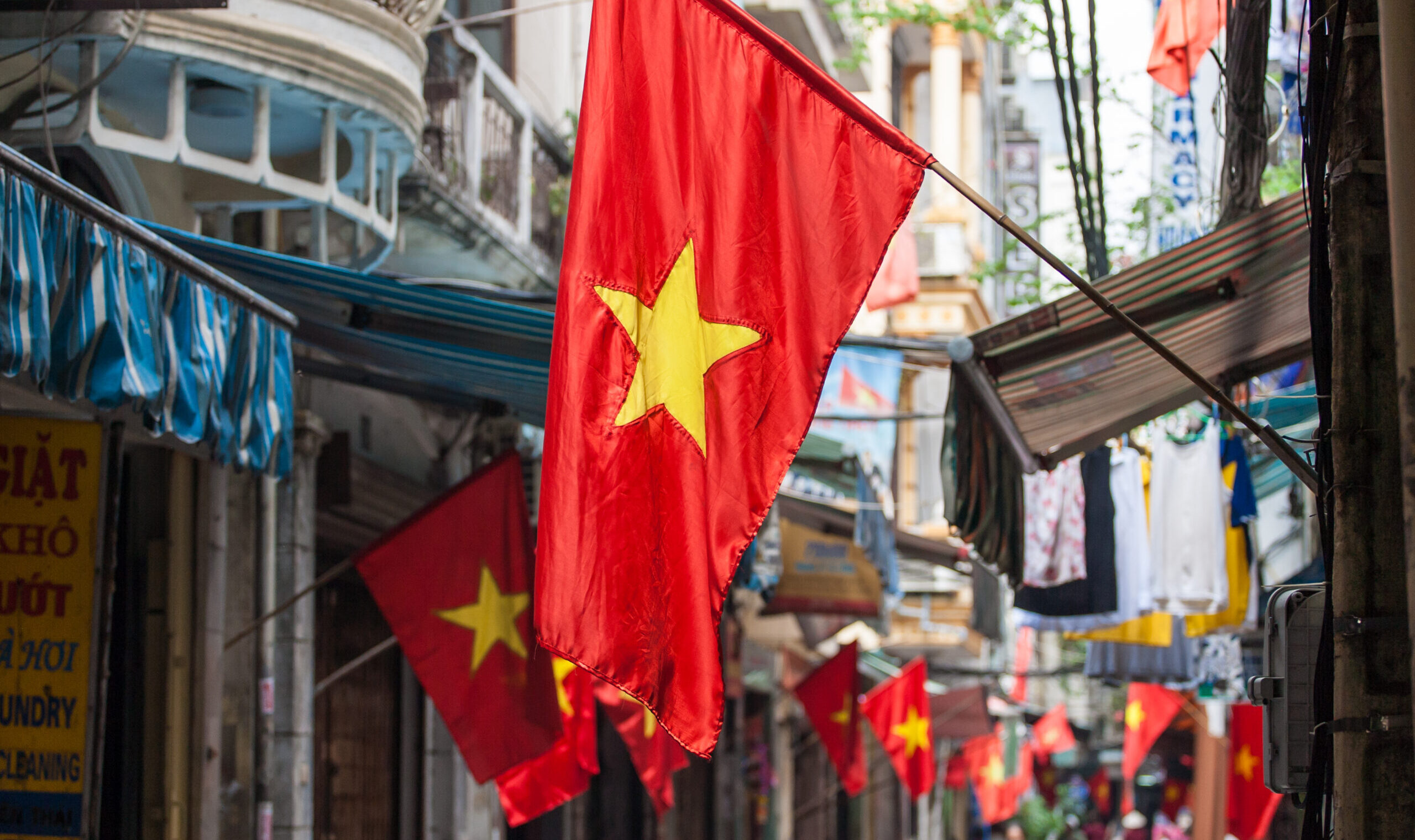Iran, Vietnam, and Trump’s Chance for Peace
The transformation of Vietnam from foe to partner is a template of hope for relations with Iran.

President Donald Trump, now past his first 100 days in his second term, has vowed to keep America out of endless wars. His bold push for a “great trade deal” with Iran is a chance to make good on that promise. But the war hawks in Washington and elsewhere are peddling a poison pill: Any deal, they insist, must include the total destruction of Iran’s civilian nuclear program, not just a commitment to forgo nuclear weapons. Iran has called this a non-starter.
History offers a better path. Vietnam, once America’s Cold War boogeyman, shows how trade, travel, and dialogue can turn enemies into partners. Trump should seize this moment, ignore the neocons, and strike a deal that brings prosperity and peace.
The former Rep. Ron Paul (R-TX) has long argued that we achieved more with Vietnam through peace and trade than by trying to bomb communism out of them. He’s right. The Vietnam of 2025 isn’t the Marxist menace we feared in the ’60s. It’s a bustling nation, open for business, with Americans vacationing in Hanoi and cutting deals in Ho Chi Minh City. Vietnam’s leaders were among the first to signal enthusiasm for trade talks with Trump, proving that old foes can become allies.
Iran, like Vietnam, is ready for a reset. In the 1990s, Tehran expressed interest in trade with the U.S., only to be rebuffed by the Clinton administration. After 9/11, Iran offered intelligence and support against Al Qaeda, but the Bush administration demonized them instead. These missed opportunities haunt us still.
The economic case for a U.S.-Iran deal is undeniable. Iran boasts some of the world’s largest oil and natural gas reserves, which could stabilize energy markets and reduce America’s dependence on volatile suppliers. Its rare earth minerals—potentially rivaling Ukraine’s deposits of neodymium, lanthanum, and cerium—could power U.S. tech industries, including electric vehicle batteries. Iran’s petrochemicals could fuel manufacturing, while its pistachios, saffron, and beautiful carpets could fill American markets. Meanwhile, Iran’s young, tech-savvy population—over 50 percent under 35—hungers for U.S. smartphones, software, and educational exchanges. American companies could tap Iran’s strategic location as a trade hub, connecting Europe, Asia, and the Middle East. This is beyond a deal; it’s a windfall.
Beyond economics, trade would dismantle the cycle of hostility that fuels terrorism and proxy wars. Sanctions and threats haven’t weakened Iran’s resolve; they’ve empowered hardliners and deepened anti-American sentiment. Opening opportunities for trade and travel would do what bombs can’t: humanize the “other.” When Iranians buy iPhones and Americans savor Persian cuisine, the specter of terrorism and violence fades. Cultural exchange erases decades of propaganda, replacing suspicion with shared aspirations. Vietnam proved this. After the war, trade and tourism built bridges where bombs built graves and misery.
The hawks’ demand to gut Iran’s civilian nuclear program is a deal-killer. Iran’s nuclear energy is a matter of national pride and practical necessity, powering a growing economy. Tehran has signaled willingness to cap its program short of weaponization, as seen in past negotiations like the 2015 JCPOA. But demanding the destruction of civilian reactors is a provocation, not an intelligent policy. It’s the kind of overreach that sabotaged Clinton’s and Bush’s chances to normalize relations. Trump, with his dealmaker’s instincts, should reject this trap—just like he defeated both political dynasties. A trade agreement that respects Iran’s sovereignty while ensuring non-proliferation is the pragmatic path.
An Iranian trade deal is not only beneficial for Iran and the U.S.—it is essential for the Middle East’s future. The neocons and Benjamin Netanyahu’s media allies claim Israel’s survival hinges on crushing Iran. They’re dead wrong. A full-on war with Iran and its proxies—Hezbollah, the Houthis, and others—would be apocalyptic for Israel, igniting a regional firestorm. Conservative media know this, and play the game of saying, “no U.S. troops on the ground, America and/or Israel with American weapons should just bomb them into submission.” These cynics know that retaliation from Iran would harm American soldiers stationed in the region which would then draw the U.S. into a full-blown war. Do you think Netanyahu cares if more of our children die in another pointless war? Can American families afford the economic destruction it would create? In contrast, U.S. trade with Iran would deescalate tensions, fostering a Middle East where commerce trumps conflict. Israel’s security depends on stability, not on bombing and starving Iranians.
The war machine in DC will howl that this is appeasement, that Iran is untrustworthy. These are the same voices that prolonged Vietnam, costing 58,000 American lives and millions of Vietnamese ones, only to see trade succeed where bombs failed. Trump has already shown he can defy the establishment—look at his negotiations with Russia or his talks with North Korea. Now he can go bigger, signing a historic trade deal with Iran that opens doors of friendship and buries decades of senseless aggression. Vietnam shows it’s possible. Iran is ready. The only question is whether Trump will listen to the liars or make the deal of the century.
The post Iran, Vietnam, and Trump’s Chance for Peace appeared first on The American Conservative.

